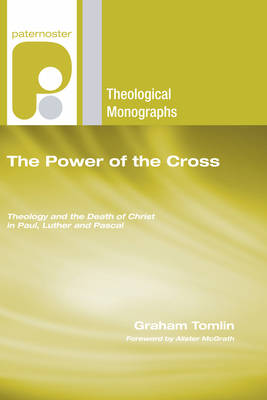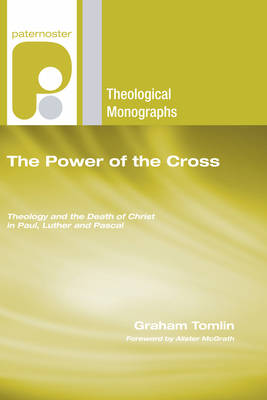
- Retrait gratuit dans votre magasin Club
- 7.000.000 titres dans notre catalogue
- Payer en toute sécurité
- Toujours un magasin près de chez vous
- Retrait gratuit dans votre magasin Club
- 7.000.0000 titres dans notre catalogue
- Payer en toute sécurité
- Toujours un magasin près de chez vous
59,95 €
+ 119 points
Description
In a postmodern world the church cannot escape the question of power. The contemporary critique of the church suggests that it reigned for so long in Western society not because it was more true than its rivals, but because it was more powerful. Is the Christian claim to truth merely a veiled bid for power? Has not the church regularly abused its power during the years of Christendom? Does Christian theology have the resources to answer these charges? This book argues that it does, in the quiet but recurrent theme of the theology of the cross. It explores the origins and contours of this kind of theology in three of its major exponents -- St. Paul, Martin Luther, and Blaise Pascal -- showing how each of them turned to a theology of the cross to combat the abuse of power within the church. It concludes by considering how such theology might do the same in the postmodern context. Of interest to anyone concerned with the role of the church in a postmodern world, or in the theology of the cross itself, this book explores vital themes for the church's life and thought both today and in the future. An impressive and penetrating exploration of the thought of three very diverse theological giants, each of whom identified the cross as a threat to, and correction of, all human and religious preoccupation's with power. Dr. Tomlin's fine study has important and salutary implications for the Christian churches of our time.' --David R. Catchpole It is one thing for the cross to stand at the center of our theological beliefs and for us to speak of its redemptive power in the heart. It is another to grasp how it must control all our thought and shape our whole life. Graham Tomlin enables us to do just that, especially by examining its peculiar power and weakness, pitted against the power and pride of our world. Here is the groundwork of constructive theology at its best. --Stephen Williams Graham Tomlin is a member of the faculty at Wycliffe Hall, the University of Oxford.
Spécifications
Parties prenantes
- Auteur(s) :
- Editeur:
Contenu
- Nombre de pages :
- 374
- Langue:
- Anglais
- Collection :
Caractéristiques
- EAN:
- 9781597527385
- Date de parution :
- 01-03-07
- Format:
- Livre broché
- Format numérique:
- Trade paperback (VS)
- Dimensions :
- 181 mm x 224 mm
- Poids :
- 521 g

Les avis
Nous publions uniquement les avis qui respectent les conditions requises. Consultez nos conditions pour les avis.






